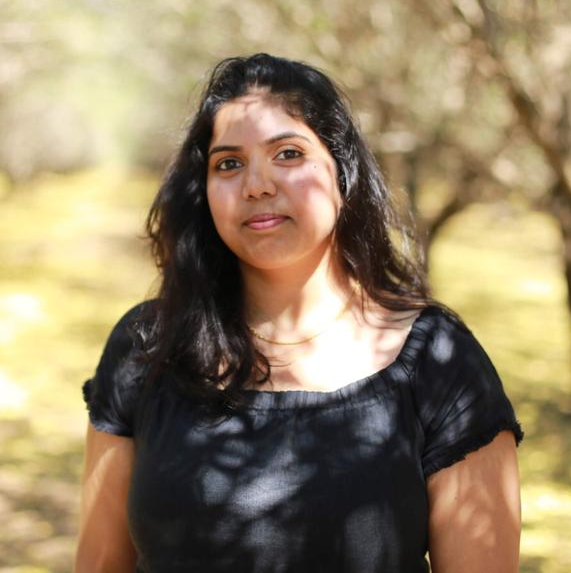About Us
CIRT Mission
UC Merced’s Cyberinfrastructure and Research Technologies (CIRT) envisions a research landscape where researchers seamlessly transition between computational levels, empowered by innovative technology solutions and educational tools. As a trusted and strategic partner to the campus research community, we build robust cyberinfrastructure, empowering the university’s research mission.
CIRT Vision
CIRT aspires to pave the way for an interconnected world of research, free from technology barriers, fostering a transformative research experience at UC Merced and beyond. We envision a future where researchers thrive in an accessible, empowered, innovative and sustainable research computing environment, accelerating their groundbreaking discoveries and making a lasting impact on the world.
CIRT Values
Diversity, Equity, Inclusion, and Accessibility
- Embracing diversity and inclusivity, recognizing them as inherent strengths that enrich our collaborative efforts.
- Committing to removing barriers and promoting equitable and accessible cyberinfrastructure resources for all.
Empowerment and Education
- Cultivating a culture to empower researchers and users by providing essential tools, knowledge, and skills.
- Maximizing the potential of our computational infrastructure through continuous innovation.
Collaboration
- Fostering a culture where collaborative solutions naturally arise to achieve outstanding outcomes.
- Actively engaging with the UC Merced academic and research community, building strong partnerships to understand needs and deliver comprehensive support and training.
- Success is defined through the alignment of our work with campus strategic values.
- Fostering an environment of open dialogue through technology tools and channels, respecting individual communication styles, modalities, and presences.
Excellence and Innovation
- Pursuing excellence through continuous innovation in service delivery and support.
- Seeking innovative approaches that elevate research computing support and training.
CIRT Standard Operational Processes
To ensure effective and efficient day-to-day operations, the CIRT team follows these standard operational processes:
Communication Protocols
- Communication flows effortlessly through communication channels like emails and Slack, respecting individual communication styles, modalities, and presences.
- Transparency prevails in sharing outcomes, leadership decisions, and expectations among team members.
- Crisis management and contingency planning are integrated into communication protocols, ensuring readiness for unforeseen challenges.
- User feedback mechanisms are integrated to gather insights and refine communication strategies.
Respectful Engagement
- Opportunities for all team members to voice their opinions are inherent.
- Leveraging technology tools for ad-hoc collaborations and transparent communication.
- One-on-one check-ins happen to address individual needs and concerns.
Research and Grant Activity
The Research IT Team provides support for technical grant writing, and in many cases, staff are included in the grant proposals, especially for grants involving cyberinfrastructure, Major Research Instrumentation or Cyber Training. Successful awards include:
- NSF Award # 2346744: CC* Regional Computing: CENVAL-ARC: Central Valley Accessible Research and Computational Hub. Read more about the CENVAL-ARC Award and its computational resources. The CENVAL-ARC Symposium is scheduled for March 7, 2025 at the UC Merced campus.
- NSF Award #2321123: CyberTraining: Pilot: Cross-Layer Training of High-Performance Deep Learning Technologies and Applications for Research Workforce Development in Central Valley. Read more about the Training Award.
- NSF Award #1429783: MRI Acquisition: Multi-Environment Research Computer for Exploration and Discovery (MERCED) Cluster. Read more about the Merced Cluster Award.
- NSF Award #1659210: CC* Networking Infrastructure: Building a Science DMZ Network for University of California Merced. Read more about the DMZ Network Award.
- NSF Award #1633429: NRT-IGE: Reducing Attrition of Underrepresented Minority and First-Generation Graduate Students in Interdisciplinary Computational Sciences. Read more about the Computational Sciences Award.
- NSF Award #2019144: MRI: Acquisition of Pinnacles -- Raising Research Computing to New Heights in California's Central Valley. Read more about the Pinnacles Award
Research Computing Staff
Sarvani Chadalapaka is the Director of Cyberinfrastructure and Research Technologies (DCIRT) at the University of California, Merced.
During her 7 year tenure at UC Merced, Ms Chadalapaka has increased the capacity of the campus cluster from 40 - over 400 users. Ms Chadalapaka was also responsible for the successful move of the cluster to a new, state-of-the art, Data Center for Research Computing at UC Merced. She has empowered a number of first-time HPC users - both graduate researchers and faculty members  alike - to use HPC resources in her office hours, Carpentry sessions, 1:1 and research group training thus reducing the barriers to HPC.
alike - to use HPC resources in her office hours, Carpentry sessions, 1:1 and research group training thus reducing the barriers to HPC.
Ms Chadalapaka is an active member of numerous Research Computing communities including Women in HPC, XSEDE Campus Champions, the Internet2 Steering Committee, Campus Consortium of Research Computing (CaRCC), Carpentries, UC Tech and UC Research IT Committee (UC RITC). Her community service includes Mentoring Program Chair for the inaugural Women in HPC Summit, Diversity, Equity Inclusivity (DEI) Co-Chair for PEARC 2020, ACM Undergraduate Poster Chair for SuperComputing (SC20). Her community engagement has resulted in multiple speaking and panelist engagements at a range of conferences including PEARC, UCTech, SuperComputing, UC-Ref, ACI-Ref, Virtual Residency and Internet2 TechEx.
Ms Chadalapaka holds a master’s degree in electrical engineering from the University of Texas-Arlington and a bachelor’s degree in electronics and communication engineering from India. She has always been an ardent supporter of WSTEM and also participates in numerous community activities such as mentoring WSTEM students at UC Merced.
Dr. Suzanne Sindi is the Co-Advisor of Cyberinfrastructure and Research Technologies (ACIRT), Associate Professor of Applied Mathematics, the Chair of the Applied Mathematics Undergraduate Program at the University of California, Merced. 
Dr. Sindi one of the founding members of our faculty led Committee on Research Computing(CoRC), the Co-PI on both the NSF-MRI grant responsible for the original MERCED cluster as well as our new Pinnacles cluster and PI on the NSF-CC* grant which created our Science DMZ.
Dr. Sindi passionate about supporting under-represented groups in STEM. She is one of the founders of UC Merced's W-STEM group and the organizer of the Association for Women in Mathematics (AWM) workshops at the SIAM Annual Meeting.
Dr. Sindi's lab consists of graduate students from Applied Mathematics and Quantitative and Systems Biology at UC Merced as well as the University of Lyon. Dr. Sindi's work is supported by multiple grants from the National Science Foundation and National Institutes of Health as well as a grant from the Army Office of Scientific Research.
Robert Romero, a seasoned professional in Systems Administration and IT Management, joined the Cyber Infrastructure and Research Technologies in 2020 as a Senior Systems Administrator. Although he was new to our campus, he is no stranger to Merced, having graduated from Merced High School and Merced College.
 With over a decade of experience under his belt, Mr. Romero's expertise was honed during his tenure as an IT Manager at NBCUniversal Media. There, he garnered recognition for his exceptional commitment to service, earning multiple awards for his contributions to the company's 24/7/365 business operations, particularly in supporting mission-critical on-air Infrastructure.
With over a decade of experience under his belt, Mr. Romero's expertise was honed during his tenure as an IT Manager at NBCUniversal Media. There, he garnered recognition for his exceptional commitment to service, earning multiple awards for his contributions to the company's 24/7/365 business operations, particularly in supporting mission-critical on-air Infrastructure.
A proud United States Navy Veteran, Mr. Romero's dedication extends beyond his professional duties. At NBCUniversal, he served as a leader within the veterans’ network employee resource group, demonstrating his passion for supporting fellow veterans. Mr. Romero currently serves on the Staff Assembly Board on campus as the Finance Officer-Elect 2023/24 and will serve as the Finance Officer for 2024/25. Additionally, he was previously selected as an XSEDE Fellow and actively participates in the advancement and innovations of high-performance computing and computational research here on campus.
Yue Yu is the Sr. Research Computing Facilitator for the Cyberinfrastructure and Research Technologies (CIRT) team at the University of California, Merced
Dr. Yu earned dual B.S. degrees in 2014, specializing in Chemical Engineering from the University of Kentucky in Lexington, KY, USA, and in Process Equipment and Control Engineering from China University of Mining and Technology (CUMT). During her undergraduate years, she conducted research under the guidance of Prof. Yang-Tse Cheng, focusing on biomaterial analysis. Subsequently, she earned her Ph.D. in 2017 in Chemical Engineering from the University of Kentucky, working under the supervision of Prof. Christina M. Payne in the field of computational chemistry. Following a postdoctoral study with Dr. Justin A. Lemkul at Virginia Tech, where she explored protein dynamics related to Alzheimer's disease, she relocated to California. There, she became a postdoctoral scholar in Dr. Liang Shi's group, focusing on the study of various organic photovoltaic materials using computer simulations.
Drawing upon her extensive background in computational research, Dr. Yu transitioned to the CIRT team in 2021, taking on the role of Sr. Research Computing Facilitator. In this capacity, she assists researchers in conducting their studies using HPC. Additionally, Dr. Yu also serves as an ACCESS Allocation Reviewer. Dr. Yu was recently granted an NSF award (2321123) in partnership with Dr. Xiaoyi Lu.
Alex Villa is the Student Technology Consultant for the Cyberinfrastructure and Research Technologies (CIRT) team at the University of California, Merced 
Alex is an undergraduate student at the University of California, Merced, working towards a Bachelor of Science in Computer Science & Engineering. He is part of the CIRT team, where his focus lies in the research domain through tasks such as documentation/tutorial creation and assisting with workshops. Additionally, Alex serves as an undergraduate research assistant, demonstrating a keen interest in high-performance computing (HPC) applications and their utilization of communication methods, such as MPI.
Outside of academics, he is passionate about engaging in recreational and club activities.
Committee on Research Computing (CoRC)
The Committee on Research Computing is the main self-governance and oversight body for Research Computing. Known as CoRC, the committee consists of representative faculty from all three schools: Natural Sciences; Social Sciences, Humanities and Arts (SSHA), and Engineering. The committee meets monthly to review the status of the three major components of advanced campus cyberinfrastructure: HPC, High-performance Networking and through its WAVE Steering Committee, Visualization. CoRC Leadership consists of the committee Chair, Vice Chair and ex officio Research IT staff. Leadership meets weekly to review operations, propose policy and set the agenda for the full committee meetings. CoRC is an example of successful self-governance that provides specific, measurable, attainable, relevant and time-bound goals for Research Computing on campus.
Suzanne Sindi Professor, Applied Mathematics (Chair of CoRC)
Ross Greer Assistant Professor, Computer Science & Engineering (CSE)
Charlie Eaton Associate Professor, Sociology
David Ardell Professor, Molecular and Cellular Biology
David Strubbe Associate Professor, Physics
Lisa Yeo Assistant Professor, Ernest & Julio Management Program



